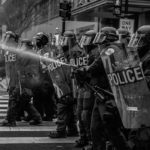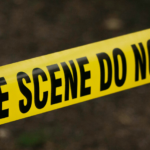How to Turn the Tables on the Prosecution
The Law Enforcement Body-Worn Camera Privacy Act sets out the rules police departments must follow to preserve evidence to help exonerate a defendant charged with a felony or misdemeanor offense.

Using Police Body Cameras as Evidence to Defend Criminal Charges
The Body-Worn Camera Privacy Act (BWCPA) requires law enforcement officers and police departments to preserve video from police body cameras when the evidence is connected to an ongoing criminal investigation, a prosecution, or any internal investigation. The only exceptions to the requirement that the police department must preserve police body camera video are when the video:
- interferes with law enforcement proceedings
- deprives a person of the right to a fair trial
- constitutes an unwarranted invasion of personal property
- discloses the identity of a confidential informant
- discloses law enforcement investigative techniques and procedures
- endangers the life or physical safety of law enforcement personnel
- discloses private information regarding a victim
Using Police Body Cameras to Support a Defense
The advent of police body cameras in Michigan represents a significant shift towards transparency and accountability. For defense attorneys and their clients, these devices are not just tools for law enforcement but can also be a pivotal asset in building a robust defense strategy.
Police body cameras offer an objective viewpoint of interactions between law enforcement officers and civilians, capturing crucial details that might otherwise rely on conflicting accounts. For defense teams, these recordings can provide invaluable evidence that challenges the prosecution’s narrative or corroborates the defendant’s version of events. Whether it’s clarifying the sequence of actions, verifying statements made during an encounter, or demonstrating law enforcement’s adherence to or deviation from proper procedures, police body camera footage stands as a powerful testament to the truth.
Moreover, this technology can highlight instances of police misconduct or the infringement of an individual’s rights, such as unlawful searches or improper interrogation tactics. In cases where the legality of police actions is in question, police body camera footage can be instrumental in arguing for the suppression of unlawfully obtained evidence, thereby significantly impacting the outcome of a case. LEWIS & DICKSTEIN, P.L.L.C., leverages this cutting-edge evidence to meticulously scrutinize every interaction, ensuring that the rights of the accused are fiercely protected.

Police Body Camera Evidence Must Not be Destroyed
The BWCPA sets out the rules for how long body camera video evidence must be preserved and safeguarded by law enforcement. Unfortunately, the rules provide unreasonably short periods before the police can legally destroy this essential evidence. Experienced criminal defense lawyers will know how to force law enforcement to preserve this evidence when it might otherwise be destroyed or recorded over. Under the statute, police must only preserve “evidentiary audio and video recordings” for 30 days. Evidentiary audio and video include recordings of crimes, arrests, citations, searches, use of force, and confrontational encounters. Camera recordings that are the subject of an ongoing criminal investigation or an ongoing prosecution must be preserved until the completion of the legal proceedings. Without the intervention of a knowledgeable defense lawyer, the decision as to whether to preserve this critical evidence will be left up to the sole discretion of the police. Leaving the discretion to the police means that any evidence that shows your innocence will likely disappear unless your lawyer intervenes.
When should the police activate police body cameras?
Michigan law does not provide standardized rules for police departments regarding when to activate their police body cameras, and law enforcement agencies are permitted to set their own guidelines. The International Association of Chiefs of Police (IACP) recommends that police body cameras be activated when they come into contact with citizens during official police business. IACP further recommends that police advise other officers, emergency responders, and the public if they are being recorded. There are no penalties if an officer fails to activate the recorder; however, a defense lawyer will be able to show that the lack of a recording should be considered in favor of the defendant.

Using Evidence in the Defense of Felony and Misdemeanor Charges
The Defense Team with LEWIS & DICKSTEIN, P.L.L.C. has decades of experience successfully defending clients and using law enforcement-collected evidence, including footage from police body cameras, to win jury trials and file motions to dismiss charges. Where many lawyers assume evidence collected by police will support a conviction, skilled and creative lawyers know how to turn the tables in favor of the defense. If you are charged with or being investigated for a felony or misdemeanor offense and want to turn the tables and gain the advantage in court, call us today for a free consultation. We will find a way to help you!
Call us today at (248) 263-6800 for a free consultation or complete an online Request for Assistance Form. We will contact you promptly and find a way to help you.













